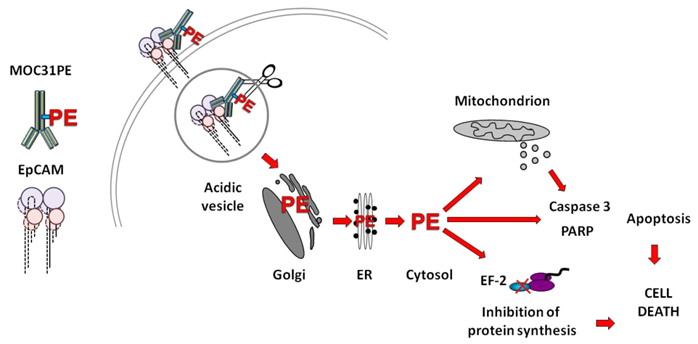The founder of Department of Tumor Biology, Prof Øystein Fodstad, brought together key technologies to develop immunotoxins comprising full-length murine antibodies against surface antigens that are overexpressed in cancer coupled to Pseudomonas exotoxin A (PE). The two most promising drug candidates have been MOC31PE and BM7PE, targeting EpCAM and Muc1, respectively. In a series of research projects, these immunotoxins have been explored preclinically and in clinical trials. Preclinically, these drugs have exhibited remarkable ability to kill tumor cells, with negligible off-target activity. In clinical trials (metastatic colorectal cancer), MOC31PE was shown to be well tolerated when administered intravenously or intraperitoneally, with interesting long-term results and importantly, immune activation.
We are currently conducting a phase 1 trial of BM7PE in patients with end-stage metastatic colorectal cancer https://clinicaltrials.gov/.
Previously published articles:

Illustration of the MOC31PE immunotoxin, its internalization and mode of action. MOC31PE is composed of the MOC31 monoclonal antibody targeting the tumor-associated antigen EpCAM, covalently linked to Pseudomonas exotoxin A (PE). The antibody directs the MOC31PE to EpCAM-expressing cancer cells, and when internalized, the toxin effector moiety rapidly triggers cell death by catalytic inactivation of vital processes, and by directly inducing apoptosis.
